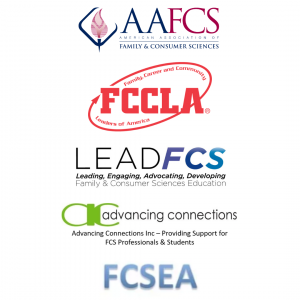
Alliance for FCS Responds to the Publication of a Modernized Career Clusters Framework
The Alliance for Family and Consumer Sciences joins other associations to voice its concerns about the recently published Modernized Career Clusters Framework.
ALEXANDRIA, VA, UNITED STATES, October 23, 2024 /EINPresswire.com/ -- On October 21, 2024 Advance CTE, a Maryland based nonprofit, announced the publication of a new National Career Clusters Framework. Upon review, it is the opinion of the Alliance and the undersigned organizations that the Framework fails to address the needs of learners and adults, educators, industries, and communities.The revised framework is meant to support states as they implement, manage, and oversee career and technical education (CTE) programs and report learner participation data to the federal government in accordance with the Strengthening Career and Technical Education for the 21st Century Act (Perkins V), published in 2018.
Research has found that participating in CTE in high school has significant, positive impacts on academic achievement, high school completion, employability skills, college readiness, the likelihood of enrolling in a community or technical college after high school, and employment. (1) And Perkins V provides federal funding to support states as they implement such programs; recognizing that CTE positively impacts learners and their future career opportunities.
By identifying clusters of similar careers (e.g., career clusters), states can more easily develop CTE programs including teacher certification and/or licensure requirements for each cluster, instructional standards, and credentialing for learners. Learners and adults can use the clusters to identify careers of interest and develop a plan for future education or employment in pursuit of those career aspirations. Industries can work with schools to support those clusters that lead to employment in those industries, providing experts, resources, and more. And communities benefit directly through increases in high-skilled workers and employment rates.
Upon review of the newly published Framework, it is our view that the published Advance CTE Career Clusters Framework fails to adequately represent the full spectrum of careers that contribute to a robust and effective economy, as it overlooks critical fields and industries that are essential for economic growth and sustainability.
By not including a diverse range of occupations, the framework risks excluding valuable career pathways and limiting opportunities for a comprehensive workforce development strategy. The Framework also does not consider the structural requirements of states in developing and managing these programs and reporting learner enrollment data to the federal government nor the needs of learners as they pursue their career aspirations.
While it is important to periodically update career clusters overtime, the clusters must be reflective of CTE in schools across the United States and meet the needs of learners and adults, educators, industries, and communities. While many stakeholders participated in surveys and expert groups organized by Advance CTE, it is clear that feedback from these stakeholders was not fully considered in developing the new Framework. In our view the new Framework
• will not support learners and adults to identify and pursue careers,
• will not assist educators in developing CTE programs,
• will not support employee growth in all industries – many of which are experiencing worker shortages, and
• will not lead to growth and increased employment in communities.
There is a need to develop a comprehensive set of clusters that fully reflects the interdisciplinary nature of CTE. That assists states and educators in developing CTE programs and reporting on learner participation in a cost-effective and efficient manner. And that ensures that all industries and communities can benefit from these programs. However, the Framework published by Advance CTE does not meet these needs.
We, the Alliance for FCS and the undersigned, invite all stakeholders - learners and adults, educators, industries, and communities - to join us to develop a series of clusters that reflects CTE in the United States, is inclusive of all careers and industries, and adequately addresses the needs of all stakeholders. And we remain ready to support learners and adults, educators, industries, and communities as they pursue CTE programs.
(1) Lindsay, J., Hughes, K., Dougherty, S. M., Reese, K., & Joshi, M. (2024). What we know about the impact of career and technical education: A systematic review of the research. American Institutes for Research, Career and Technical Education Research Network. Retrieved from: https://cteresearchnetwork.org/resources/2024-systematic-review.
About the Alliance for FCS
A coalition of organizations representing academia, industry, professional associations, and honor societies leading FCS efforts around the globe. Founded in 2006 by the AAFCS to unify diverse organizations in common purpose by advancing the value of FCS globally.
https://www.aafcs.org/allianceforfcs/home
Karin Athanas
AAFCS
+1 703-706-4600
email us here
Distribution channels: Education, Social Media, Textiles & Fabric Industry, Travel & Tourism Industry, U.S. Politics
Legal Disclaimer:
EIN Presswire provides this news content "as is" without warranty of any kind. We do not accept any responsibility or liability for the accuracy, content, images, videos, licenses, completeness, legality, or reliability of the information contained in this article. If you have any complaints or copyright issues related to this article, kindly contact the author above.
Submit your press release

